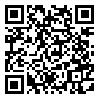BibTeX | RIS | EndNote | Medlars | ProCite | Reference Manager | RefWorks
Send citation to:
URL: http://ijict.itrc.ac.ir/article-1-220-en.html
Selection of appropriate learning objects and delivery of them to learners considering students' characteristics are known as a challenging task in e-learning systems. In design and development process of educational material, the attention must be focused on learner's characteristics and requirements which are defined in terms of content and learning style. To determine the best learning object, a model of learner can be constructed based on some learner's personal and behavioral features like learning styles, user's browsing history and user's prior knowledge. Grouping students based on their learning styles is one of appropriate approaches which have been followed in this area. However, some special characteristics and limitations of e-learning environments have led to the fact that any decision making and adaptation based only on static learning style recognition might be deficient. In this paper we introduce an evolutionary fuzzy clustering (EFC) method using genetic algorithm, in which learners are divided into some categories according to their behavioral factors and interactions with the system in order to adopt the most appropriate learning objects, methods, and recommendations. Results of the proposed method are compared with K-means and fuzzy C-means clustering methods using Davies-Bouldin cluster validity index and the comparison shows that EFC method has the better clustering performance than the others.
| Rights and permissions | |
 | This work is licensed under a Creative Commons Attribution-NonCommercial 4.0 International License. |




